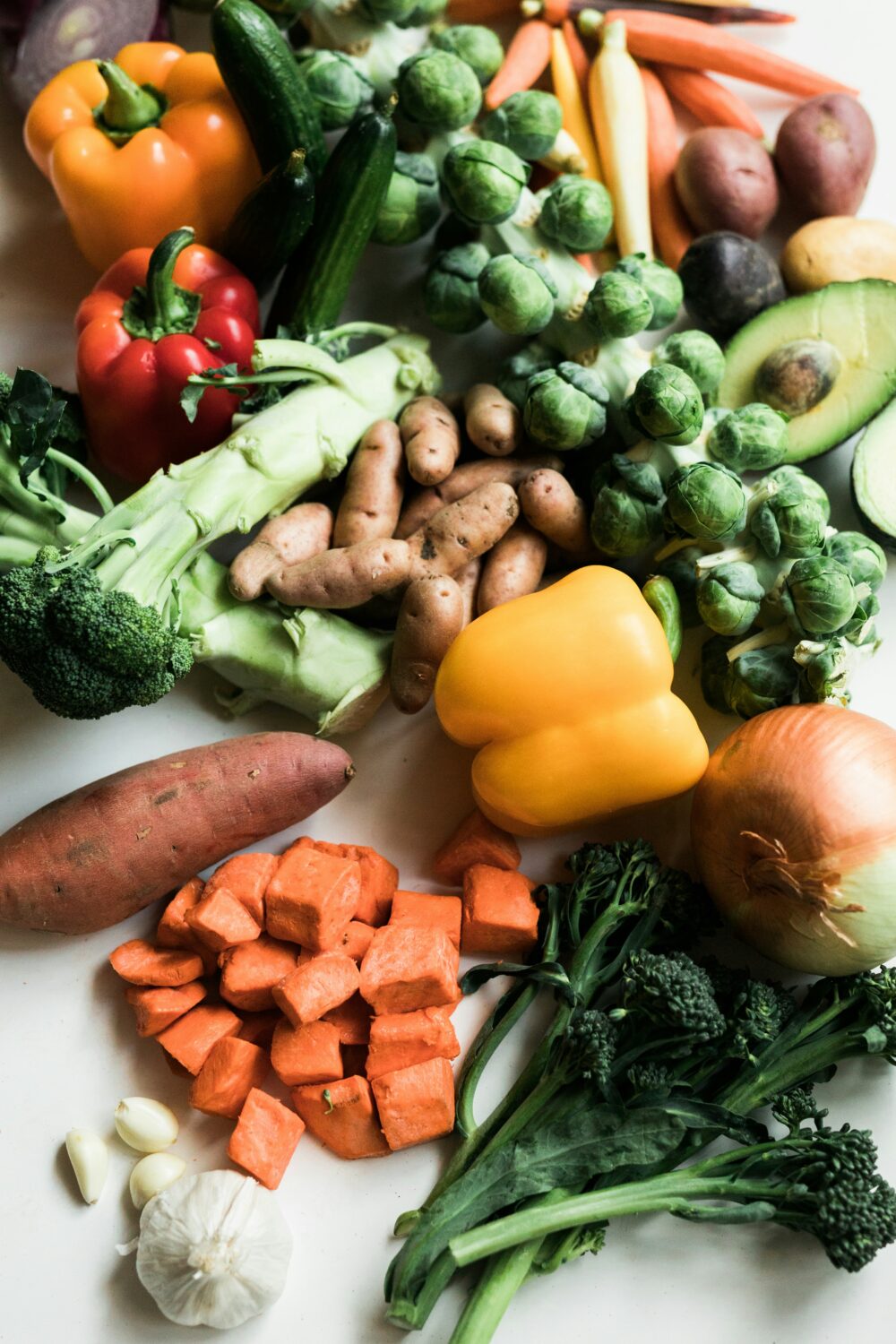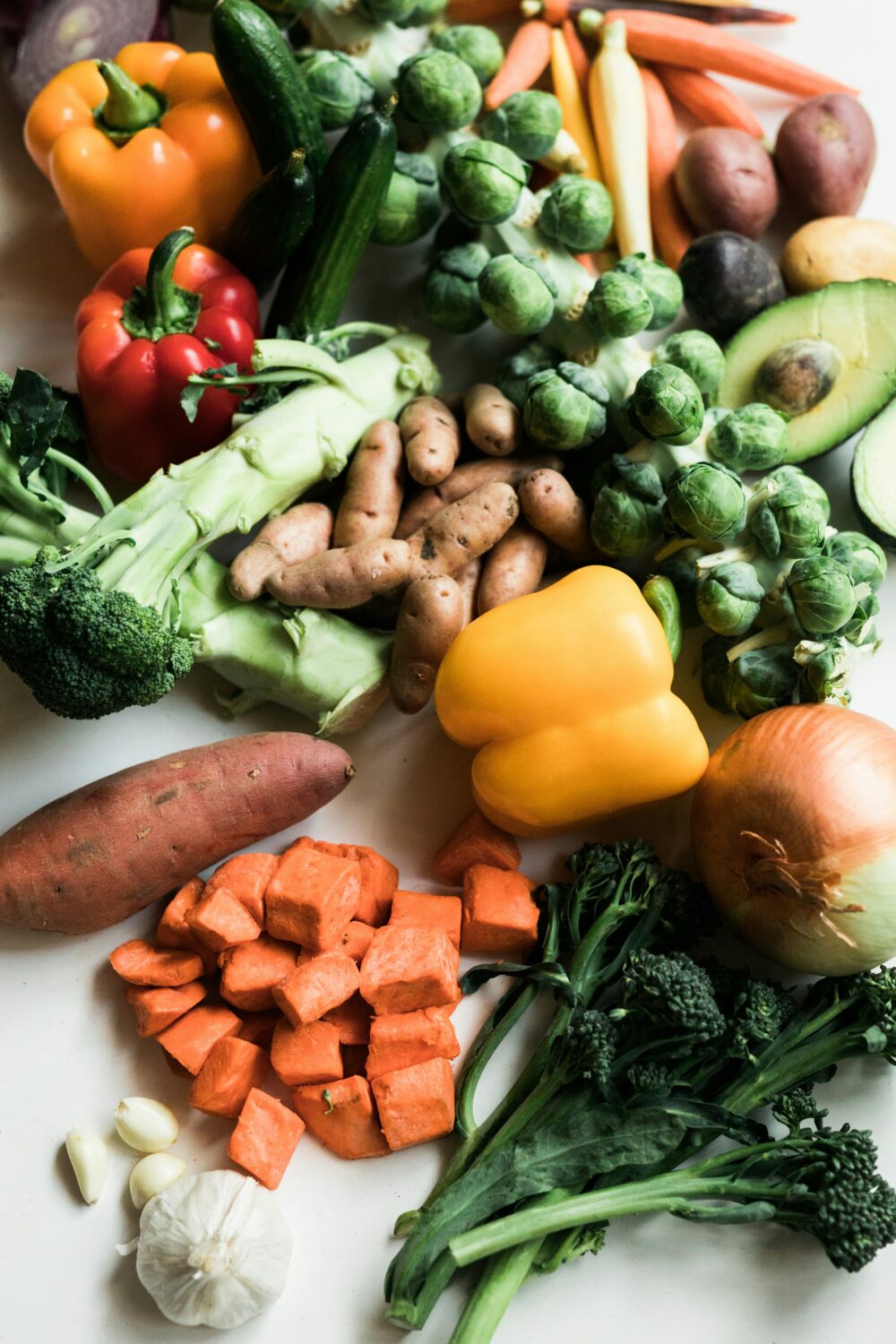
Additionally, the act of eating vegetables can also contribute to our sense of happiness. When we choose to eat vegetables, we are making a conscious decision to prioritize our health and well-being. This act of self-care can boost our self-esteem and give us a sense of accomplishment, leading to an overall positive mood.
Moreover, the vibrant colors and textures of vegetables can stimulate our senses and enhance our eating experience. The variety of colors found in vegetables, from the deep green of broccoli to the bright orange of carrots, can be visually appealing and pleasurable to the eye. The crunchiness of raw vegetables or the tenderness of steamed ones can provide a satisfying sensory experience, further contributing to our enjoyment of the meal.
Furthermore, eating vegetables can also have social benefits that contribute to our happiness. Sharing a meal that includes a variety of vegetables with friends or family can create a sense of connection and foster positive relationships. Cooking and preparing vegetables together can be a fun and collaborative activity that brings people together, creating a joyful and fulfilling experience.
Lastly, the knowledge that we are making a positive impact on the environment by choosing to eat vegetables can also contribute to our happiness. Vegetables have a lower carbon footprint compared to animal products, and by incorporating more vegetables into our diet, we are reducing our contribution to climate change and promoting sustainability. This awareness and sense of responsibility can bring a sense of fulfillment and happiness.
In conclusion, the connection between eating vegetables and happiness is multifaceted. From the nutritional benefits that support brain health to the sensory and social aspects of consuming vegetables, there are many reasons why eating vegetables can contribute to our overall well-being and happiness. So, next time you enjoy a delicious salad or a plate of steamed vegetables, savor the moment and know that you are nourishing both your body and your mind.
Furthermore, a vegetarian lifestyle can also have positive effects on animal welfare. The meat industry is often associated with practices that involve cruelty and suffering towards animals. By choosing to abstain from consuming meat, individuals can take a stand against these unethical practices and promote a more compassionate approach towards animals.
Moreover, a vegetarian diet can offer a wide range of nutritional benefits. While it is important to ensure adequate intake of essential nutrients such as protein, iron, and vitamin B12, a well-planned vegetarian diet can provide all the necessary nutrients for optimal health. Plant-based sources of protein, such as legumes, tofu, and quinoa, can easily meet the body’s protein requirements. Additionally, a variety of fruits, vegetables, and whole grains can provide essential vitamins, minerals, and antioxidants.
Adopting a vegetarian lifestyle can also encourage culinary exploration and creativity. With the abundance of plant-based ingredients available, individuals can experiment with new flavors, textures, and cooking techniques. This can lead to the discovery of delicious and nutritious meals that are not only satisfying but also contribute to overall well-being.
Furthermore, a vegetarian lifestyle can have a positive impact on personal finances. Plant-based foods, such as grains, legumes, and vegetables, tend to be more affordable compared to meat and animal products. By reducing or eliminating meat consumption, individuals can save money on their grocery bills and allocate those savings towards other aspects of their lives.
In conclusion, adopting a vegetarian lifestyle can bring about a multitude of benefits for human health, the environment, animal welfare, and personal well-being. By making conscious choices about what we consume, we can contribute to a more sustainable and compassionate world.
Practical Tips for Incorporating More Vegetables into Your Diet
Now that we understand the benefits of eating vegetables and following a vegetarian lifestyle, let’s explore some practical tips for incorporating more vegetables into our daily diet:
- Start by adding a side of vegetables to every meal. Whether it’s a salad, steamed vegetables, or a stir-fry, make it a habit to include a generous portion of vegetables with your main dish. This not only adds color and flavor to your plate but also increases the nutritional value of your meal. Vegetables are packed with essential vitamins, minerals, and fiber that are vital for maintaining overall health.
- Experiment with different cooking methods and flavors. Roasting vegetables can bring out their natural sweetness, while adding herbs and spices can enhance their taste. Don’t be afraid to try new recipes and explore different cuisines. For example, you can try grilling vegetables for a smoky flavor or sautéing them with garlic and olive oil for a Mediterranean twist. The possibilities are endless, and by being open to new flavors, you can discover exciting ways to enjoy vegetables.
- Make vegetables the star of the show. Instead of treating them as a side dish, create meals where vegetables take center stage. For example, make a vegetable stir-fry with tofu or create a hearty vegetable soup. By making vegetables the main focus of your meal, you can ensure that you are getting a wide variety of nutrients and enjoying a satisfying and balanced diet.
- Get creative with your snacks. Instead of reaching for processed snacks, opt for fresh vegetables with a healthy dip like hummus or guacamole. Carrot sticks, cucumber slices, and cherry tomatoes make great options. Not only are these snacks low in calories and high in nutrients, but they also provide a satisfying crunch and can help curb your cravings for unhealthy snacks. Plus, they are convenient to pack and take with you on the go.
- Join a community-supported agriculture (CSA) program or visit your local farmers market. This can not only provide you with a variety of fresh, seasonal vegetables but also support local farmers and promote sustainability. By purchasing locally grown produce, you can ensure that you are getting the freshest and most flavorful vegetables while also reducing your carbon footprint. Additionally, being a part of a CSA program or visiting a farmers market can expose you to a wider range of vegetables that you may not find in your regular grocery store.
- Remember, the key to incorporating more vegetables into your diet is to make it enjoyable and sustainable. Start small and gradually increase your vegetable intake over time. Experiment with different flavors and cooking methods to find what works best for you. By making vegetables a central part of your diet, you can improve your health, boost your mood, and contribute to a more sustainable future. So, let’s embrace the power of vegetables and embark on a journey towards a healthier, more vibrant life!

